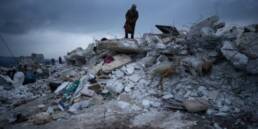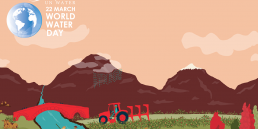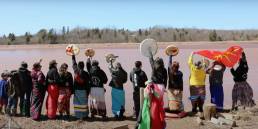As concern increases over the threat from coronavirus to indigenous peoples across the Brazilian Amazon, the Supreme Court in Brazil ruled earlier this month that the government must adopt measures to protect communities.
The death rate in the Brazilian Amazon amongst indigenous people has soared in August – to nearly 250% higher than Brazil’s average.
On-going land grabs and deforestation due to illegal mining and logging have increased unabated during the pandemic. Due to deregulation during the lockdown, enforcement of protections of indigenous areas in the Amazon have decreased, leaving communities vulnerable and subject to COVID-19 infection from those occupying areas illegally.
In response to the Bolsonaro government’s veto of 16 protections for indigenous peoples in Brazil including emergency funds for healthcare, the Articulation of Indigenous Peoples of Brazil (APIB), the primary indigenous federation in Brazil, won a Supreme Court order with measures to protect communities.
Measures include a working group to monitor and contain infections in isolated areas. However, the court order failed to include measures to expel illegal outsiders in indigenous areas and falls short of practical remedies for the current situation. In addition, we have seen that on the day after the ruling the Bolsonaro government rolled back enforcement activities against illegal miners in the state of Pará.
Action
Indigenous peoples are taking action to protect themselves by implementing their own community protocols in response to the pandemic. Some communities have closed their borders, such as in Manoa-Pium indigenous land in northern Brazil.
Protests have been sparked by the loss of elders to COVID-19 which has further devastated indigenous communities as it also means the loss of knowledge, culture, history and guidance.
This Indigenous community lost four elders to COVID-19. So the Kayapó leaders blocked a key highway in Brazil to demand government protection. pic.twitter.com/QwLtp45PPy
— AJ+ (@ajplus) August 20, 2020
The Bolsonaro government has been given 30 days to adhere to the court ruling. Sustained pressure on this administration is needed to help protect indigenous peoples across the Brazilian Amazon. Measures taken should be inline with international law to protect indigenous peoples’ right to self-determination and free, prior and informed consent of any action taken on their lands.
As according to the UN Special Rapporteur on the rights of indigenous peoples, José Francisco Cali Tzay,
“Now, more than ever, Governments worldwide should support indigenous peoples to implement their own plans to protect their communities and participate in the elaboration of nationwide initiatives to ensure these do not discriminate against them.”
Main banner image: Kayapo indigenous people block Brazil’s national highway during protests demanding government protection against the spread of COVID-19 in their indigenous lands in Novo Progresso, Para state, Brazil. Photo credit: Reuters/Lucas Landau.
Related Posts
March 15, 2023
Turkey and Syria earthquakes: what we know so far
In the early hours of 6 February 2023,…



